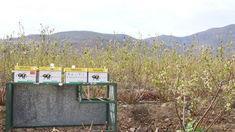
Koppert Biological Systems has founded a new South American subsidiary in a joint venture to produce and sell biological control solutions.
Koppert Chile SA is located in Quillota near Valparaíso, in the V region of Chile, and is a partnership with local company, Xilema, to help protect fruit crops in the region.
Xilema started work in the region in 1995 and has collaborated with the country’s universities to produce several native natural enemies used for control of mealybug in grapes, apples, blueberries and other fruit crops.
The company saw a possibility of improving agricultural management and production for several other crops, such as tomatoes and blueberries, in collaborating with Koppert.
Koppert Chile was founded in early 2009 and headed up by Martin Riegel Perez. The first imports of the ‘natural pest enemy’ Bombus terrestris to Chile took place in April 2009.
Since then, work has been fast-moving and extensive. The Natupol colonies were used for tomato nethouses in the northern region of the country. After a few months, the hives were introduced in the desert area of Arica.
On the other side of the country, growers have already been using bumblebees in their blueberry orchards, and others are now starting the practice. Both are interested in the solution Koppert is offering for open-field crops - Tripol, a hive specially bred for outdoor use.
As well as being a leading player in the global blueberry industry Chile supplies table grapes, avocados, apples and cherries - a considerable industry on which Koppert hopes to build.
The use of bumblebees for pollination of open-field blueberries is common in the US and Canada and has drawn the attention of more and more growers in Chile.
Bumblebees, which deal with the Chilean weather conditions well, have been proven to create higher production, improved quality and earlier crop maturity in blueberries.



